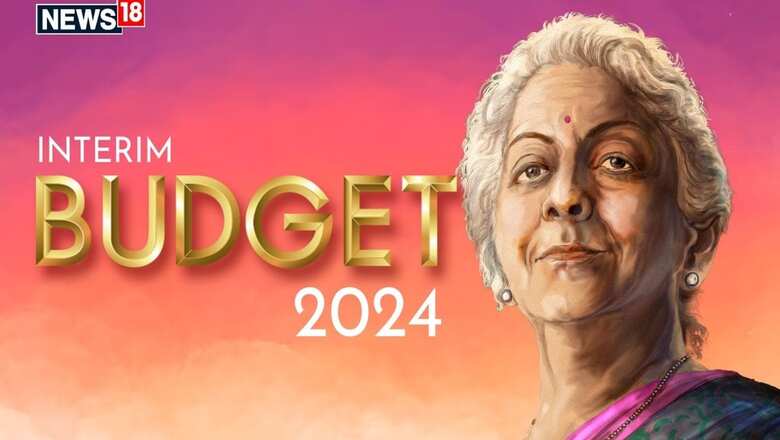
views
As the interim budget for 2024 approaches, India eagerly awaits what Finance Minister Nirmala Sitharaman has in store. While it’s important to remember that an interim budget focuses on maintaining essential services until the new government takes over, several key expectations remain.
An interim budget, also known as a vote-on-account, is a temporary financial plan presented by the government when it doesn’t have the time or mandate to present a full budget.
Also Read: Budget 2024: What Is ‘Bahi Khata’? A Look At How Budget Briefcase Has Evolved
Budget 2024 Date
The interim budget for the fiscal year 2024-25 will be presented on February 1, 2024. As per Indian custom, an interim budget precedes general elections, which are expected to be held in April-May 2024.
Due to its interim nature, major policy changes are unlikely. However, there are strong expectations in various sectors:
Top expectations;
- Salaried taxpayers: Increased income tax slabs or deductions to boost consumer spending.
- Farmers: Continuation or increase in PM Kisan payouts to support rural income.
- Infrastructure: Push for infrastructure development, particularly in railways, roads, and semi-urban areas.
- Education and healthcare: Increased allocation for education and healthcare to enhance social welfare.
- MSMEs: Support measures for micro, small, and medium enterprises to encourage entrepreneurship.
- Digital economy: Policies and incentives to accelerate the growth of the digital economy.
- Green energy: Push for clean energy resources and renewable energy infrastructure.
Other key expectations:
- Employment generation: Measures to boost job creation through skilling programs and encouraging domestic manufacturing.
- Inflation control: Maintaining price stability through targeted interventions and fiscal discipline.
- Social welfare: Continued support for vulnerable groups like farmers, senior citizens, and women.
Here are some things one should not expect from the interim budget 2024:
Radical reforms: Given its temporary nature, the interim budget is unlikely to introduce major policy changes or structural reforms. These typically require detailed planning and implementation, which wouldn’t be feasible within the limited timeframe.
Populist schemes: While some tweaks to existing schemes are possible, large-scale welfare programs or populist initiatives aiming to woo voters are unlikely. The government wouldn’t want to compromise long-term fiscal discipline for short-term electoral gains.
Significant tax overhauls: Don’t expect major changes to income tax slabs, deductions, or exemptions. Minor adjustments or rationalisations are possible, but the government will likely avoid complex overhauls before the full budget.
High spending: Due to its bridging function, the interim budget focuses on maintaining essential services and covering existing commitments. Significant increases in expenditure, beyond what’s necessary for smooth functioning, are improbable.
These are just some of the expectations and analyses based on the recommendations by various industry experts from different sectors. The final budget may prioritise different areas, and some expectations may be or not be met. You can follow the live presentation tomorrow to find out the actual announcements.
How To Watch The Budget Live?
- You can watch the live telecast on various TV channels like Sansad TV, Doordarshan, and major news channels.
- Many media outlets will provide live streams and updates online.
- You can also follow the official Twitter handle of the Ministry of Finance (@FinMinIndia) for live updates.
Why Interim Budget This Year (2024)?
1. Transition period: When a new government takes office after elections, it needs time to assess the financial situation and formulate its own long-term budget policies. In the interim, the outgoing government presents a budget to keep the country running smoothly until the new government takes charge.
2. Pre-election period: In India, it’s a tradition that no full budget is presented in the year preceding the general elections. This is to prevent the incumbent government from using the budget as a political tool to woo voters with populist schemes. Hence, an interim budget is presented to cover government expenses until the new government is elected and presents its first full budget.
Overall, an interim budget is a temporary measure needed in specific situations. While it ensures smooth functioning during transition periods, it’s important to remember that it’s not a substitute for a full budget with its comprehensive vision and long-term economic direction.



















Comments
0 comment